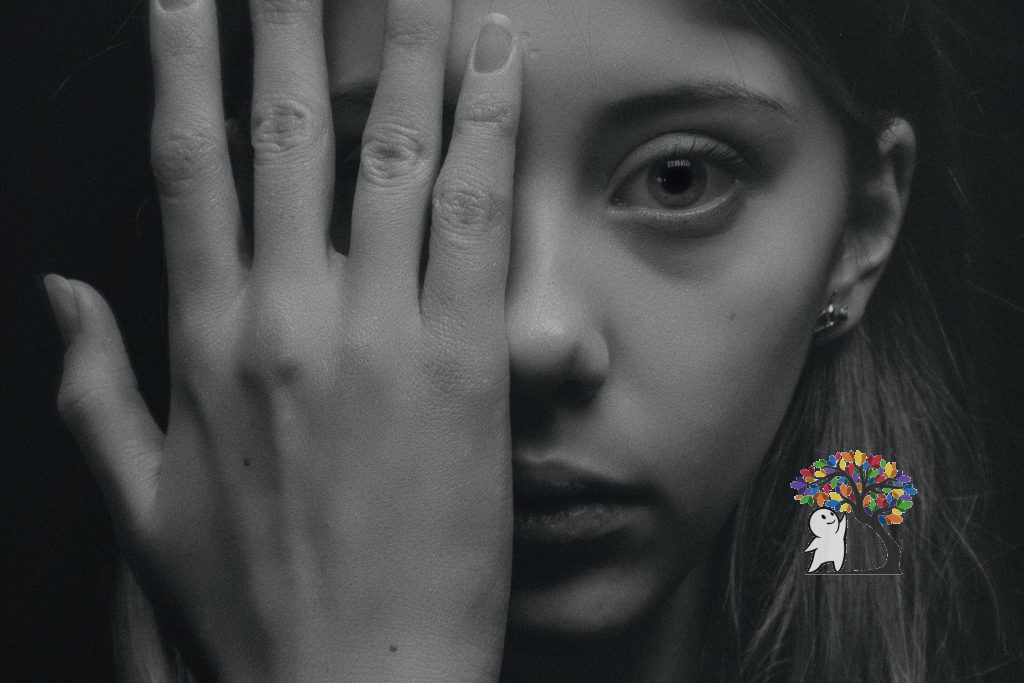4 Main Reasons Why People Abuse

If you have been in an abusive situation or are just someone who keeps being inundated with news about abuse, at one point, you must have asked yourself “why does this happen?” And most importantly, “why do they do it?”
Why people abuse is not an easy answer as there are many reasons why they do what they do. Just like anyone else, abusers are complex beings with their own thought processes and patterns.
When it comes to abuse, there’s not necessarily one specific reason but multiple reasons that all compound over time and end up manifesting in abusive behavior. Although, in some cases, the abuse can be mostly attributed to the aggressor wanting to protect themselves in some way or the aggressor wanting to manipulate because the response of the victim is fuel to them.
Before we continue, a reminder that this article is for educational purposes only and not meant to diagnose or treat anything. If you need advice or help in any way, please consider reaching out to a mental health professional.
Also, this article is not made to justify or condone people who are abusive or abusive behavior, but rather to bring more awareness to the topic.
As mentioned before, there can be many reasons why someone abuses another, but we at Psych2Go have compiled a list of four main reasons why people abuse.
1. Trauma & Learned behavior

Have you ever heard the term “Hurt people, hurt people”? This phrase refers to the fact that people who were hurt by others, will most likely turn to hurt other people themselves. The reasons for this are mainly three.
The first reason is that they learn how to be this way from the abuser.
“Some abusers learned to abuse from their parents”, states an article on MentalHealth.net, “Their early history consisted of receiving abuse themselves and/or seeing others abused (one parent abusing the other or their sibling, etc.). As a consequence, abuse is the normal condition of life for these people”.
The second reason is that it is the only thing they know.
“Such people internalized a particular relationship dynamic, namely the complementary roles of “abuser” and “victim”. They are familiar with and fully understand the terror of being the helpless victim from their own childhood experience”, says MentalHealth.net.
The third reason that traumatized people choose to be the abuser is that they do not want to be helpless anymore.
“Given the choice between being the out-of-control victim, or the in-control abuser, some of these people grow up to prefer the role of the abuser,” says MentalHealth.net.
MentalHealth.net continues and explains, “By choosing to be the aggressor and abuser, they may get their first sense of taking control over their own destiny and not being at the mercy of others. That they hurt others in the process may go unregistered or only occur as a dim part of their awareness”.
2. Mental Illness & Lack of Empathy

Have you noticed that some people suffering from mental illnesses tend to be more aggressive? Mental illness can also be a reason why some people abuse others. People with anger management issues or impulse control issues, for example, tend to blow up over every little thing because they can’t contain their emotions.
There are also those who do feel very little to no empathy, like sociopaths, narcissists, and psychopaths. These people hurt others because they see people as objects and not humans who have rights and feelings. They cannot empathize with other people and do not care if they hurt you as long as they are getting what they want out of you.
“[It] stems from a desire to gain and maintain power and control over an intimate partner (family member, friend, etc.)”, states The National Domestic Hotline site, “Abusive people believe they have the right to control and restrict their partner’s lives, often either because they believe their own feelings and needs should be the priority in the relationship, or because they enjoy exerting the power that such abuse gives them”.
MentalHealth.net states on its site some of the things that these abusers enjoy getting out of their victims. A few reasons why abusers and aggressors like exerting power.
“Such people may abuse because of the benefits they receive from doing so”, says MentalHealth.net, “for instance, sexual or financial gratification, or the simple allure of power over other people’s lives”.
MentalHealth.net continues, “Abusers who treat people in this manner (like objects) are very likely psychologically ill, and possibly medically ill as well”.
3. Hurt Feelings

Have you ever been so hurt, sad, or angry that you have thought about hurting the one who hurt you? It is normal to think about retaliation when we are hurt but not many of us go through with it because we have empathy and we know how to manage our feelings without getting physical.
This is not so with some people though. Due to the overprotectiveness of parents or guardians, some people never learn to get their feelings hurt and deal with them in a positive manner. Instead, when they get angry or upset because their feelings go hurt, they might quit or resort to some sort of aggression.
This was the case of one of Carrie Askin’s, a licensed clinical social worker (LCSW), patients. Joe had been overprotected and soothed by his parents all of his life. They did everything in their power to not have him be upset because he was a nice child.
As an adult, Joe had turned to violence and silent treatment instead of working things out with his wife whenever they had an argument. This led to their separation.
“Over many years of treating abusive behavior, we have learned that the problem isn’t that people like Joe can’t ‘manage their anger”, says Askin in her article published on Psychology Today, “When Joe’s boss chews him out at work, he doesn’t blow up. So if the problem isn’t anger management, then why do people abuse their partners?”
In Joe’s case, the reason is that he never learned how to process, feel, and manage his negative feelings.
“Knowing how to have your feelings hurt without retaliating is an important relationship skill”, says Askin, “Joe never learned what to do with feelings like disappointment, hurt, and shame. He learned to expect that he should be protected from discomfort because he was such a nice guy”.
Unfortunately, just like Joe, there are others who suffer from a similar problem of not being able to work through their feelings.
“Joe is not alone in this”, says Askin, “Many men never develop this skill. Most boys learn early that if someone hurts or embarrasses them, you have to hurt them back. If you get hurt, don’t show it. Don’t cry. Don’t look scared or sad or anxious”.
This is a problem, especially in relationships where vulnerability and communication are two key factors that contribute to the closeness and intimacy of the couple. If you can’t express your feelings or needs, then intimacy is hard to obtain.
When you can’t control your feelings or know what to do with them, it could lead to physical, mental, or emotional abuse just like in Joe’s case.
“Being able to tolerate injuries without punishing the other person is one of the most important skills for partnership because inevitably, your partner will hurt your feelings or disappoint you”, explains Askin, “Most of our clients don’t have a problem with anger management. Most of the people we work with have a problem tolerating being hurt”.
4. Lack of Accountability & Entitlement

In some cases where the parents protected their children at all costs, spoiled them, or abused them the children may develop a sense of entitlement and a lack of accountability.
Their sense of entitlement comes from always getting what they wanted and never being said no. Or the feeling that the world owes them because of the abuse they endured. With this entitlement, lack of accountability forms.
“Abuse happens in the context of a world that says that it’s okay to hurt others when we are hurt”, says Carrie Askin, LCSW, “Abusive partners behave abusively, to some extent, because they can”.
In this instance, abusers consider that they have a right to hurt because their entitlement has been hurt.
“If I think that I have a right to not be hurt or embarrassed then I’m likely to punish you when my entitlement has been violated”, explains Askin.
Askin goes back to the example of her patient Joe, describing how his hurt entitlement made him take abusive actions against his wife.
“Joe walks around thinking that he’s a nice guy — everyone says so — but then he goes home to his wife and she says that he’s hurtful and Joe knows that she’s right”, says Askin, “but it hurts when she says so and he’s been taught that he’s entitled to have his feelings protected”.
Protecting themselves and their feelings seems to be one of the main reasons why some people abuse. Another main reason is that some of them don’t care about people, as they see others as objects that can be used for their own purposes. That can be thrown away, discarded, and reused as they please.
With any abusive relationship or person, we recommend getting help and for you to look after your physical, mental, and emotional wellbeing.
Did you recognize any of these reasons? Did we miss any? Comment below and tell us about your experience. Don’t forget to check out our YouTube channel for more. Thank you for reading.
Sources:
Askin, C. (2015, October 27). Five reasons people abuse their partners | Psychology Today. Psychology Today. Retrieved from https://www.psychologytoday.com/us/blog/hurt-people-hurt-people/201510/five-reasons-people-abuse-their-partners.
National Domestic Violence Hotline. (2021, June 21). Why people abuse. The Hotline. Retrieved from https://www.thehotline.org/identify-abuse/why-do-people-abuse/.
Mental Health Staff. (n.d.). Why do people abuse? Mental Help Why Do People Abuse Comments. Retrieved from https://www.mentalhelp.net/abuse/why-do-people-do-it/.
Purse, M. (2020, June 15). How sociopaths are different from psychopaths. Verywell Mind. Retrieved from https://www.verywellmind.com/what-is-a-sociopath-380184.



Responses